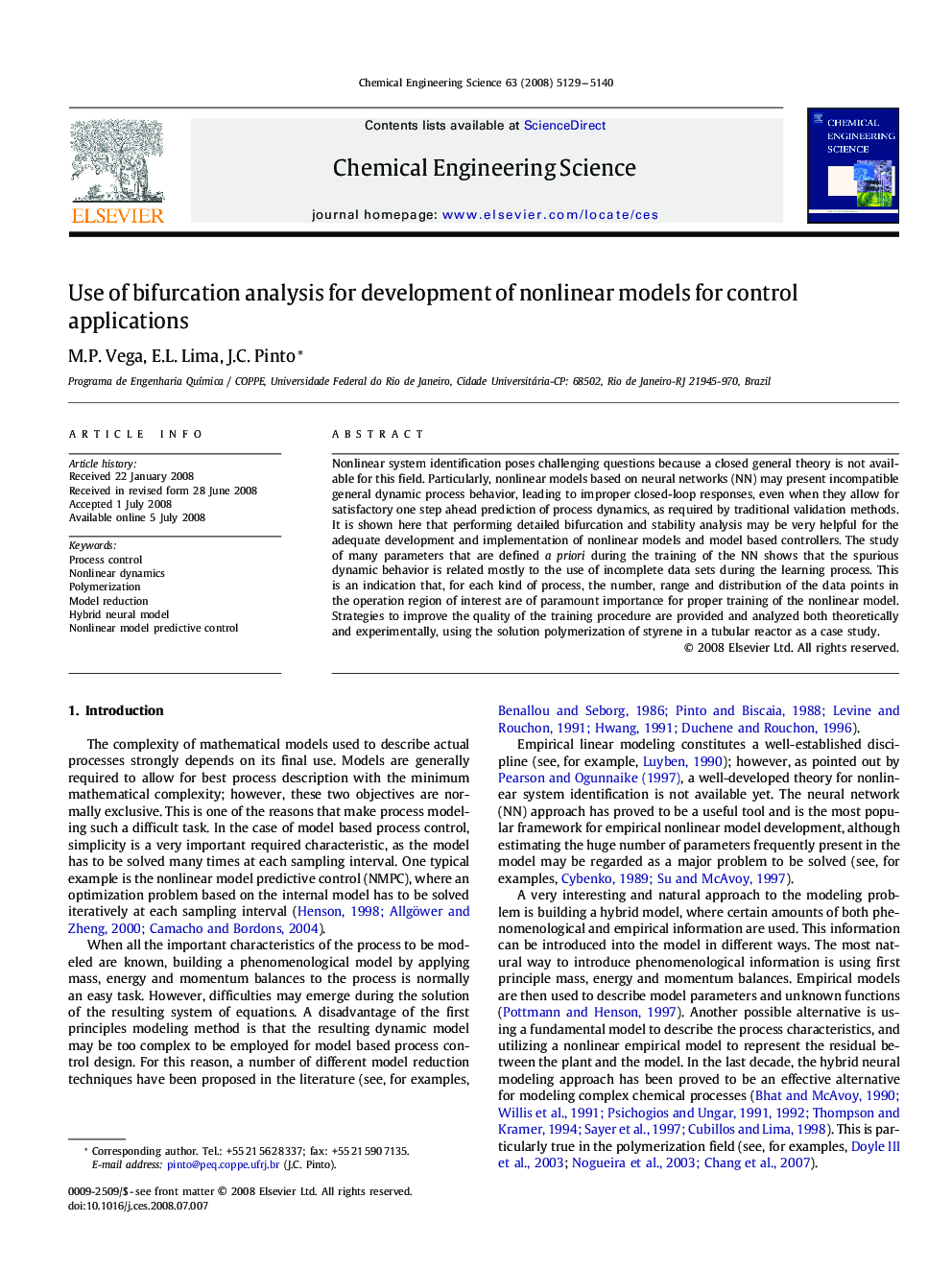| Article ID | Journal | Published Year | Pages | File Type |
|---|---|---|---|---|
| 157542 | Chemical Engineering Science | 2008 | 12 Pages |
Nonlinear system identification poses challenging questions because a closed general theory is not available for this field. Particularly, nonlinear models based on neural networks (NN) may present incompatible general dynamic process behavior, leading to improper closed-loop responses, even when they allow for satisfactory one step ahead prediction of process dynamics, as required by traditional validation methods. It is shown here that performing detailed bifurcation and stability analysis may be very helpful for the adequate development and implementation of nonlinear models and model based controllers. The study of many parameters that are defined a priori during the training of the NN shows that the spurious dynamic behavior is related mostly to the use of incomplete data sets during the learning process. This is an indication that, for each kind of process, the number, range and distribution of the data points in the operation region of interest are of paramount importance for proper training of the nonlinear model. Strategies to improve the quality of the training procedure are provided and analyzed both theoretically and experimentally, using the solution polymerization of styrene in a tubular reactor as a case study.
